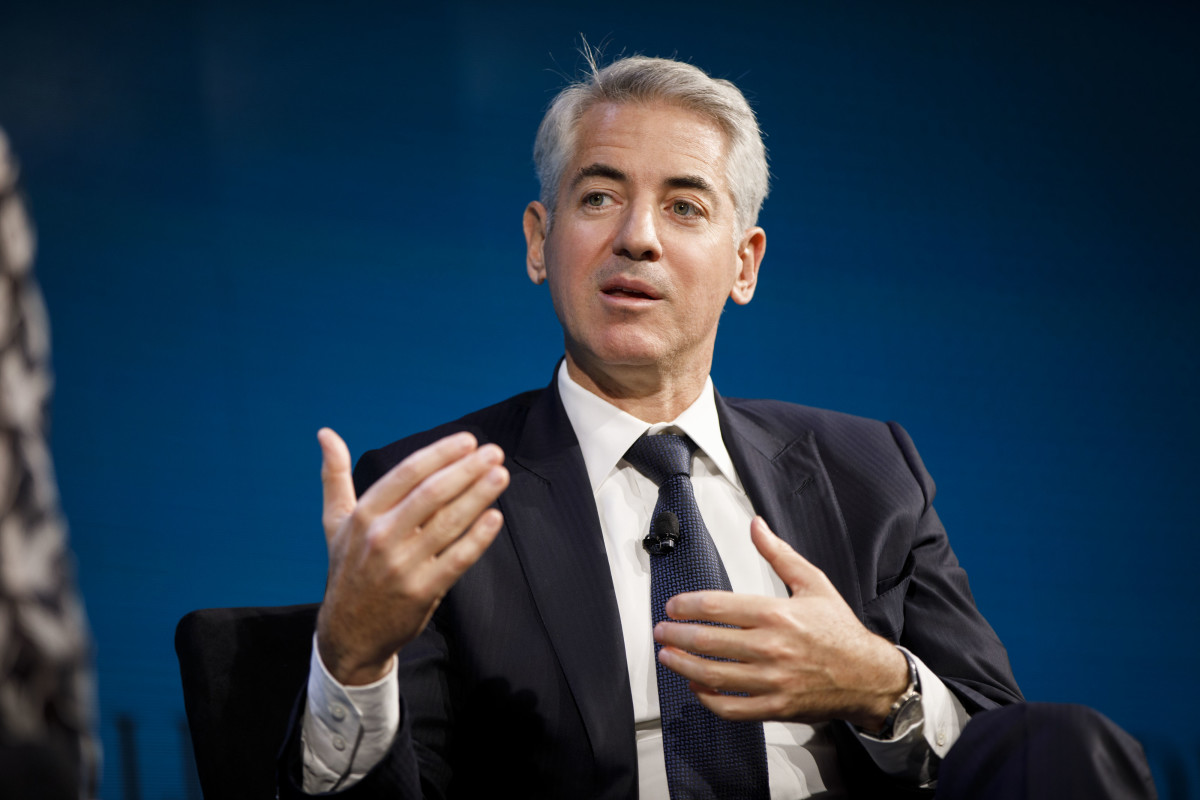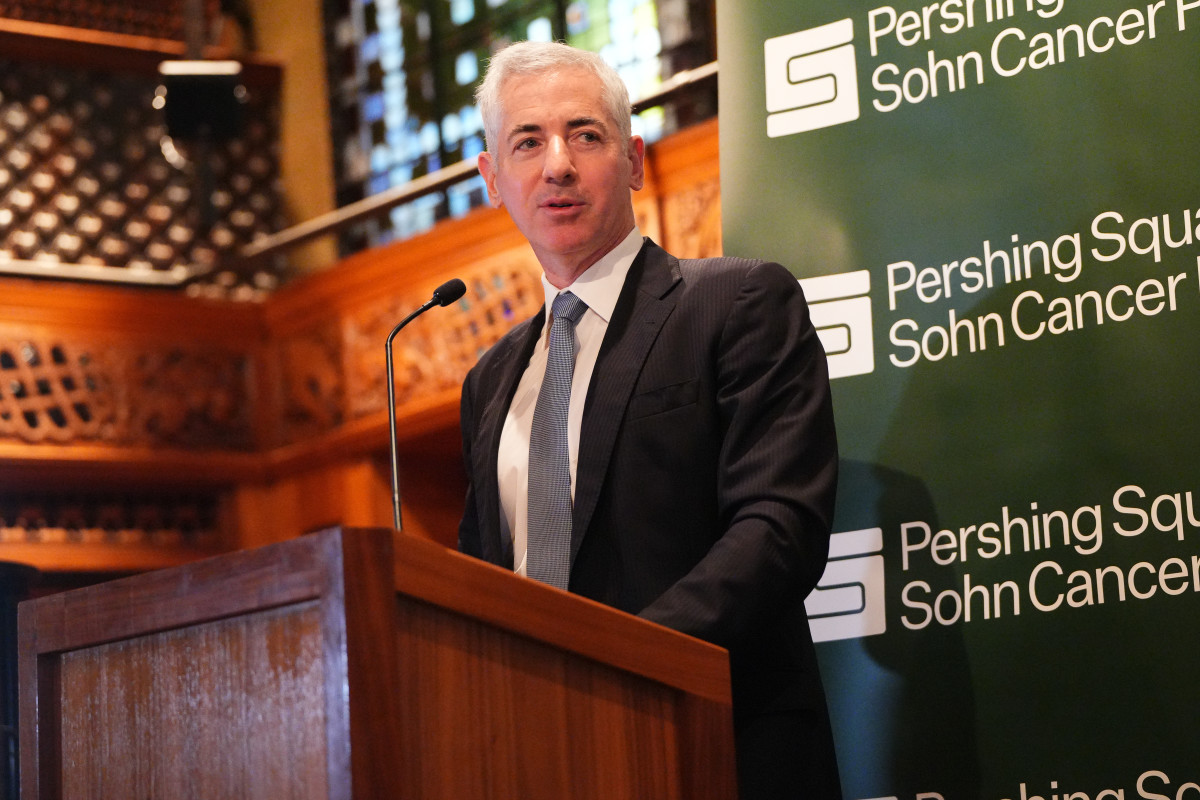
During the Great Recession, an estimated 15 million Americans lost their jobs, and about 4 million homes were foreclosed on.
In the wake of widespread regulatory reform after the 2008 financial crisis, the federal government placed Fannie Mae and Freddie Mac under financial conservatorship in an effort to help the housing market recover and get the agencies in better financial health.
Fannie Mae and Freddie Mac have traditionally operated as government-sponsored enterprises (GSEs). Both organizations aim to improve the home-buying process by increasing housing affordability by purchasing mortgage loans from lenders.
💸💰Don't miss the move: Subscribe to TheStreet's free daily newsletter💰💸
Bill Ackman, the founder of Pershing Square Capital Management, has suggested that it’s no longer necessary to keep these organizations under the federal government's control and that Donald Trump should move to privatize them by 2026.
Ackman—who stands to gain over $1 billion through Pershing Square’s strong position in Fannie Mae and Freddie Mac if they are privatized—is a strong proponent of removing these liabilities from the government’s balance sheet.
However, privatizing Fannie Mae and Freddie Mac could have dire implications for mortgage rates, housing affordability, and the market stability built over the past fifteen years since the housing crisis.

Eliminating federally guaranteed mortgages could mean trouble for an already tenuous housing market
The first time Trump was elected, he enjoyed a much more favorable housing market. Mortgage rates averaged 4% in January 2017, while rates have already surpassed 7% this month. President Trump’s attempt to privatize Fannie Mae and Freddie Mac during his first term was unsuccessful due to the risk posed to a stable and thriving housing market.
Experts predict that a second attempt to privatize the organizations could upend the housing market even further by increasing mortgage rates and worsening the current market gridlock.
While there is speculation that privatization would eliminate the 30-year fixed-rate mortgage, some experts note this is unlikely, saying it would be a lose-lose scenario that immediately worsens the housing market and damages Trump’s favorability.
More on homebuying:
- Housing expert reveals surprising ways to reduce your mortgage rate
- Americans buying homes may see major housing cost changes in 2025
- Dave Ramsey has a warning for Americans buying a home now
Though Fannie Mae and Freddie Mac were private institutions before 2008, they still carried a federal government mortgage guarantee.
Susan Wachter, professor of real estate and finance at the Wharton School at the University of Pennsylvania, notes that the organizations were never meant to stay under the conservatorship forever. “The law says they are eventually to be privatized, but the stakes are very high as to how this is carried out,” she said.
If the Trump administration is successful in privatizing Fannie Mae and Freddie Mac, there may be some spillover effects in the housing market.
Higher mortgage rates: The federal government backs all mortgage loans acquired through Fannie Mae and Freddie Mac, reducing the risk of investing in mortgage-backed securities. This federal guarantee effectively transfers the lending risk to the government, allowing consumers to enjoy lower mortgage rates from lenders.
However, mortgage rates would surge — especially for higher-risk borrowers — if Trump were to privatize these organizations since Fannie Mae and Freddie Mac couldn't offer the same government guarantees.
Stricter loan requirements: If homebuyers are solely reliant on private lenders without federal backing, the parameters for obtaining a mortgage loan approval will become more difficult. Borrowers will need higher credit scores, bigger down payments, and more collateral to get approval as a risk reduction measurement to lenders.
Lower market demand and lower home prices: Fewer mortgage loan approvals will ultimately result in reduced market activity, as buyers won’t be able to close on homes without being approved for a mortgage.
Stagnant home sales will ultimately drive home prices down, which will benefit the buyers who are able to obtain a mortgage. However, it won’t help lower-income buyers who can’t get loan approval. The combination will only increase the home-ownership gap.
Ackman would win big pushes for a less regulated housing market
In his call to action to the Trump administration released on January 16th, Ackman estimates that share prices for Fannie Mae would reach $35 in an IPO by the end of 2026, and Freddie Mac could hit $39 per share in an IPO by year-end 2027.
Related: Fed chair Jerome Powell issues warning on inflation, weak housing market
While shares for both housing agencies are up since the election and initially surged after Ackman's initial announcement on X (formerly Twitter) in December, they have recently plummeted. Fannie Mae dropped to $5.56 per share, and Freddie Mac's shares fell to $5 last week.
Stock prices for both organizations have historically been volatile and relatively low-yield, potentially incentivizing Ackman’s bid to privatize Fannie and Freddie.
"We have owned Fannie Mae and Freddie Mac common stock for more than a decade," Ackman said in his post on X. "Today, they trade at or around our average cost. As such, they have not been great investments to date."
Pershing Square stands to gain over $900 million if Trump ends the federal conservatorship and Fannie Mae and Freddie Mac become private entities.
Housing experts note that the conservatorship wasn’t created to keep the organizations under federal control indefinitely. However, in a housing market facing low inventory, stubbornly high mortgage rates, and a general affordability issue, shaking up the mortgage lending process and shifting the cost burden to borrowers could be risky at best, and disastrous at worst.
Related: Veteran fund manager issues dire S&P 500 warning for 2025







